Team Management: Navigating Challenges
Leadership must support their employees through difficult times. How do tech leaders help their reports navigate uncertainty and overcome challenges? Read on to find out.
One minute insights:
 Tech leaders feel like they’re successfully managing their employee engagement, performance and retention
Tech leaders feel like they’re successfully managing their employee engagement, performance and retention Employees discuss inflation, economic uncertainty and news of layoffs
Employees discuss inflation, economic uncertainty and news of layoffs Team restructuring is a common source of challenge within organizations
Team restructuring is a common source of challenge within organizations Many respondents opt to address divisive topics 1:1 with employees
Many respondents opt to address divisive topics 1:1 with employees Toxic positivity, inappropriate behavior and narcissism are common examples of poor leadership
Toxic positivity, inappropriate behavior and narcissism are common examples of poor leadership
Most tech leaders feel like they’re successfully managing their teams
Most respondents feel like they’re successfully managing their team’s performance (75%), engagement (70%) and retention (70%).
How are you currently finding team management according to the following aspects:
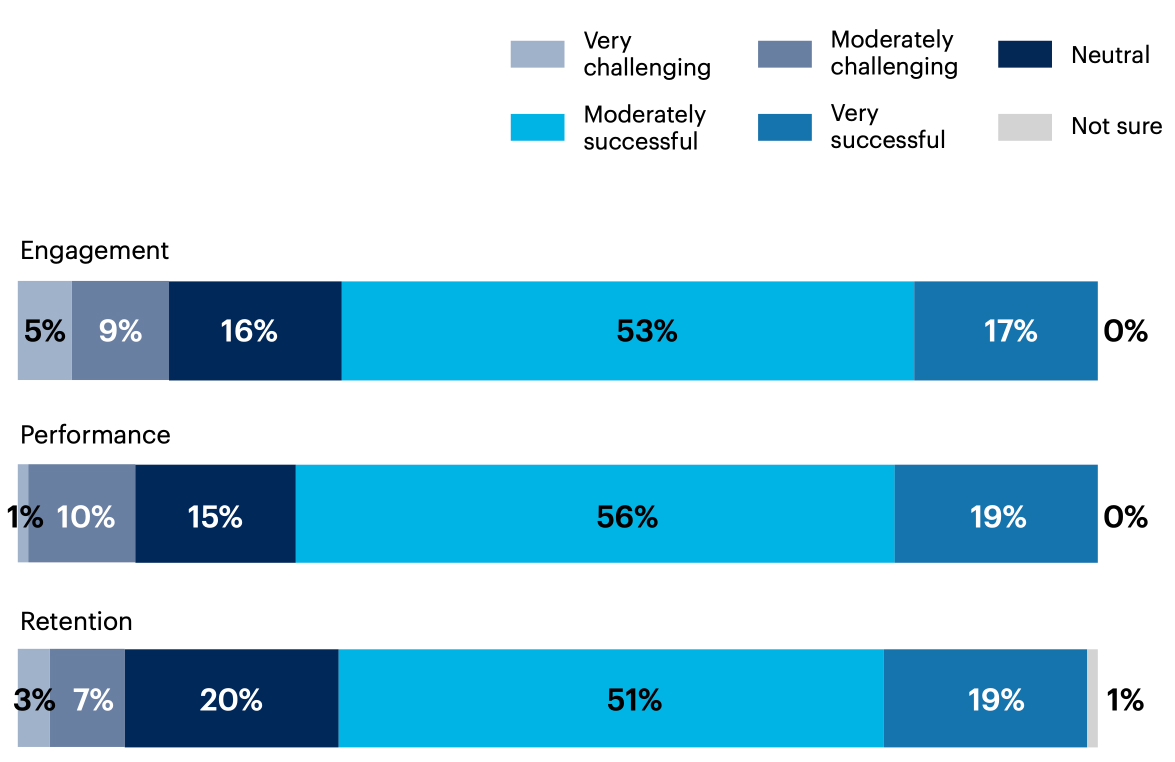
n = 300
How much of your conversation in 1:1s with direct reports is personal vs work-focused?

74% of respondents cover a balance of personal and work-focused topics in their one-to-ones with direct reports.
n = 300
Being transparent, being timely and doing what you say you’ll do are all important.
It is important to initiate open discussions face to face to address challenges in team management.
However, challenging news and situations are impacting their ability to work
To what extent is your own ability to work impacted by challenging news/situations?
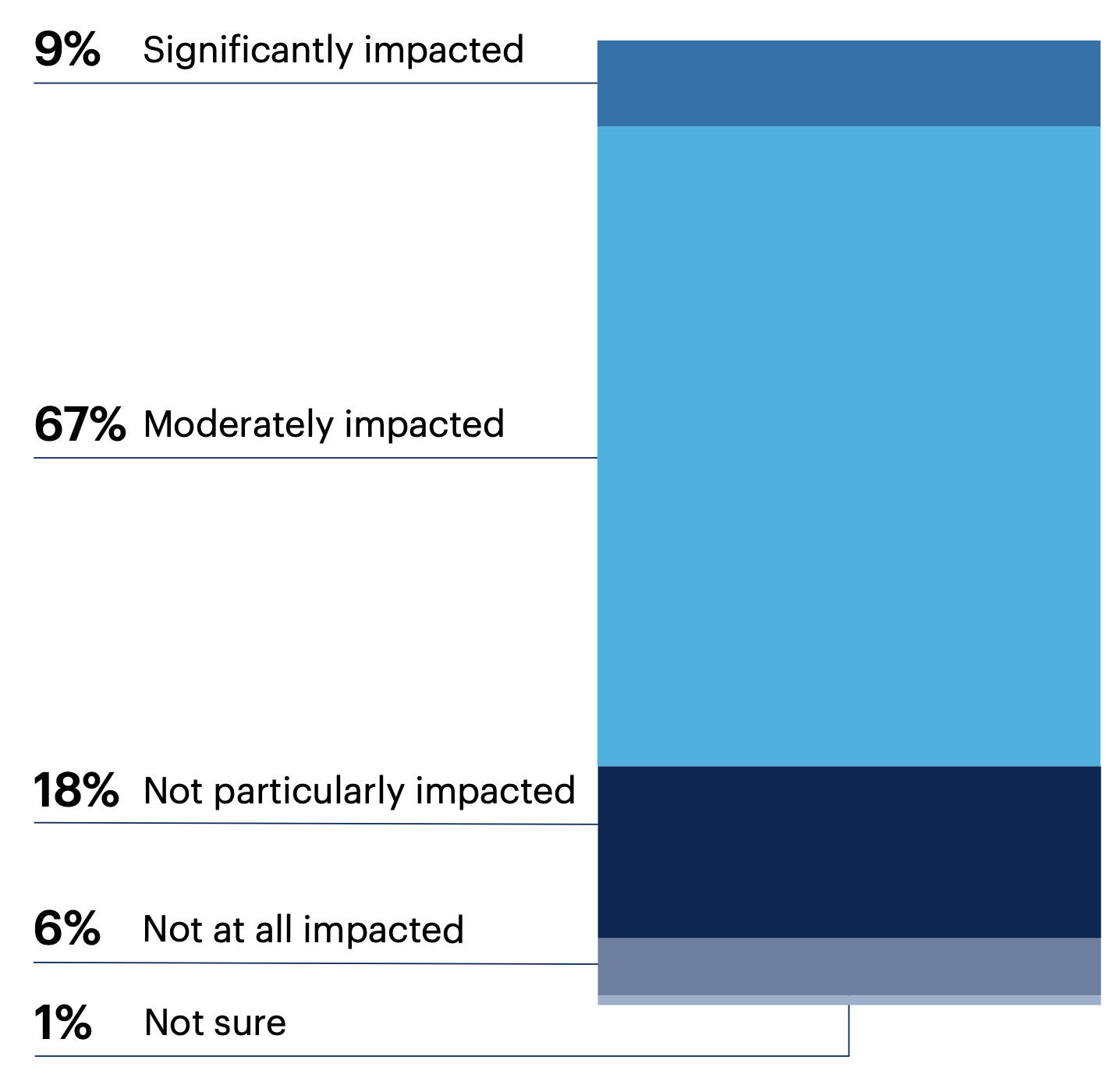
76% of respondents feel that challenging news and situations impact their ability to work.
n = 300
Leaders have noticed their team discussing inflation (53%), economic uncertainty (47%) and news of layoffs at other organizations (44%).
Have you noticed any of the following challenging topics being discussed by your team recently?

The Russian invasion of Ukraine 33%, Questioning organizational leadership/strategy 27%, The climate crisis 21%, Political/jurisprudence changes 16%, None of these 3%, Other <1%
n = 300
Is your team experiencing any of the following challenging situations?
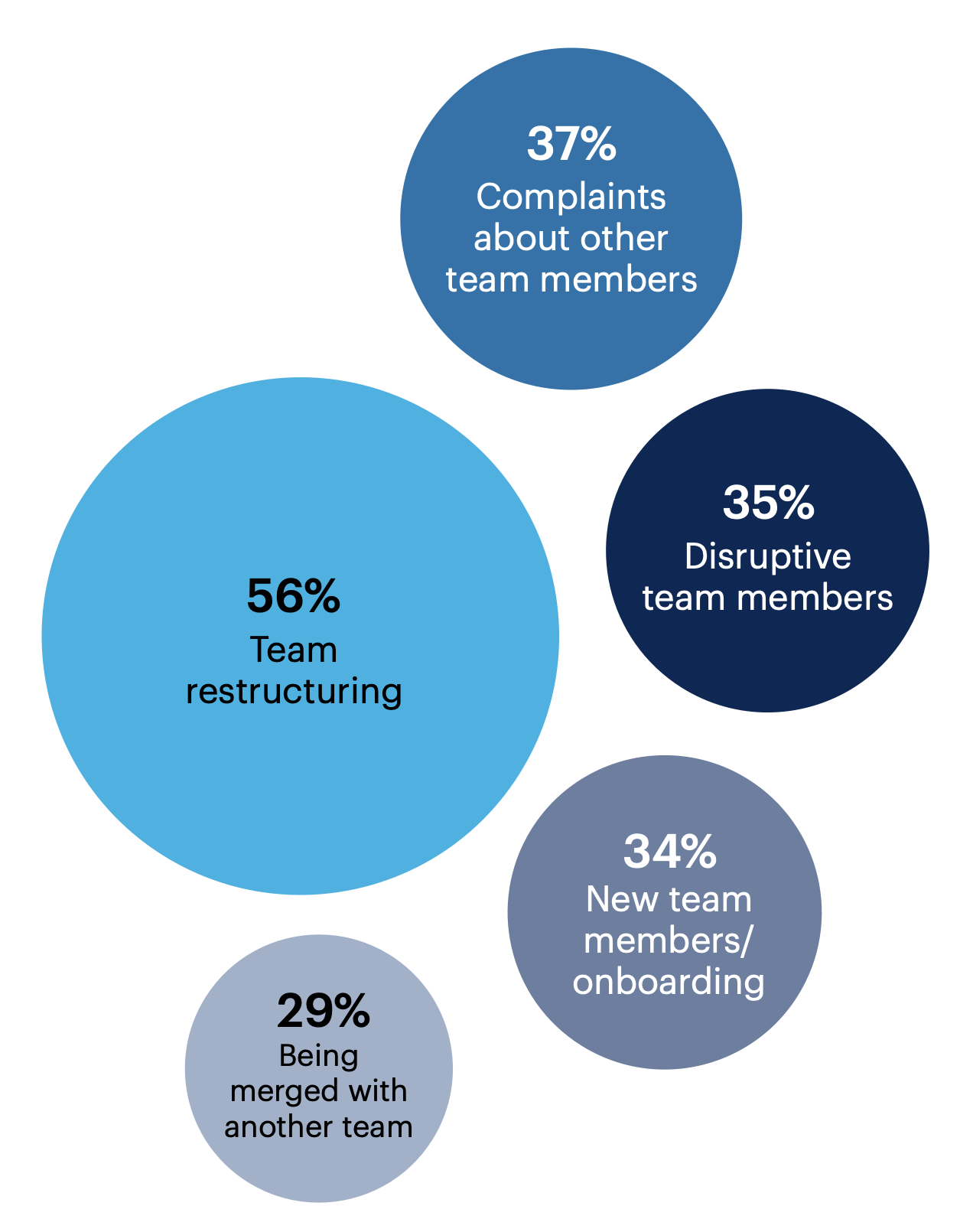
Team restructuring (56%) was the most commonly identified source of challenges within teams.
Acquired a new team 23%, Missed KPIs/OKRs 23%, Legal disputes 21%, Team layoffs 21%, None of these 6%, Other <1%
n = 300
HR and Top Management have to play [a] larger role in maintaining positivity in staff.
Leadership training is one way we are navigating challenges in team management.
Most leaders address divisive topics 1:1 and maintain an open-door policy to support employees
The most common approaches to addressing divisive topics in the workplace include 1:1s with individual employees (65%), internal comms from upper management (52%) and virtual group communication channels (50%).
31% will shut down conversations and only 22% see team meetings as an appropriate option.
What is your approach for divisive topics being discussed in the workplace? (The workplace includes remote communication channels.)

Address in team meetings 22%, Stay removed/neutral 12%, None of these 1%, Other <1%
n = 300
Leaders offer support to their reports by keeping an open-door policy (62%), addressing challenges in team meetings (61%) and encouraging employees to adopt an optimistic outlook (54%).
How do you support your reports through challenging times?
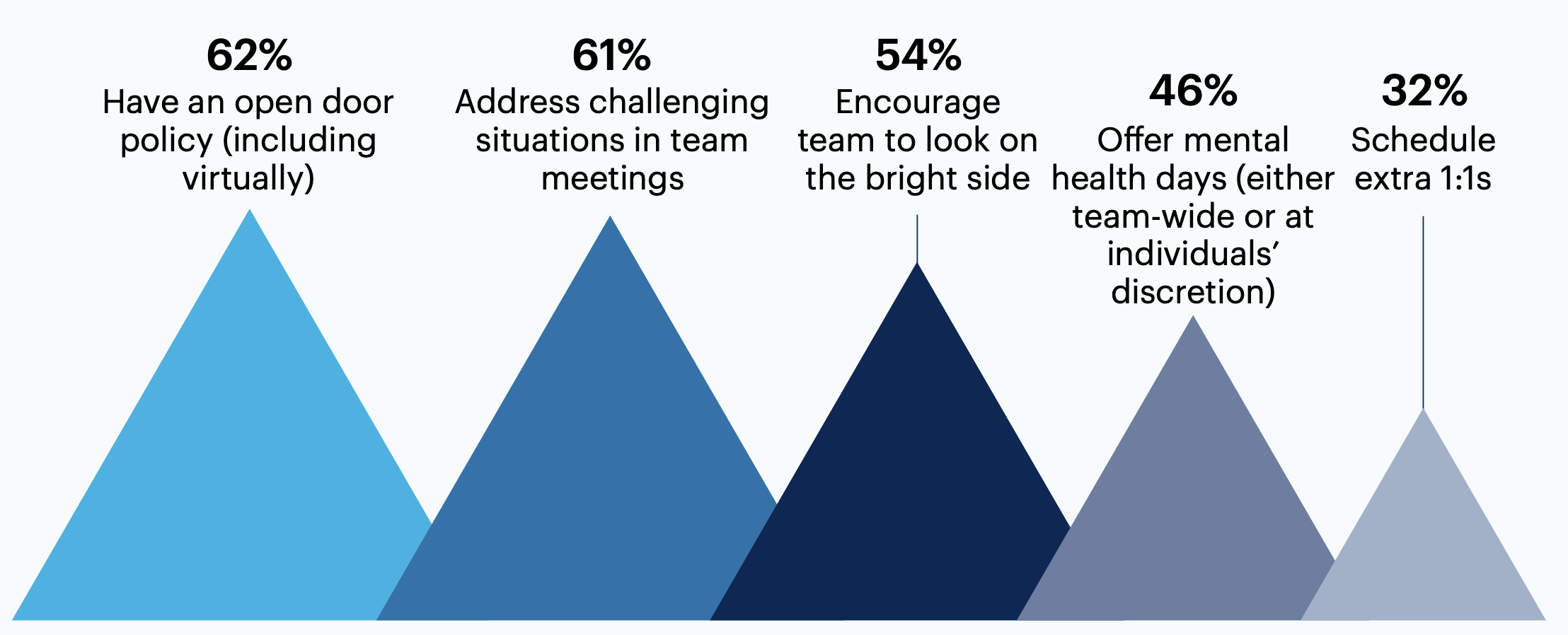
Encourage team to explore ways to increase resilience (e.g., provide mental health workshops) 26%, Direct employees to company resources that can help (e.g., volunteer programs, mental/physical health services, etc.) 20%, Send care packages 20%, Reprioritize if necessary 18%, None of these <1%, Other 0%
n = 300
Facing issues head-on is always the most important factor when navigating challenges.
We are exploring new ways [of navigating challenges in team management] like supporting mental health.
Most respondents have experienced some form of poor leadership from other leaders, but only some have chosen to report to HR
When it comes to respondents’ experiences with poor leadership, toxic positivity (43%) was the most commonly identified example. Inappropriate behavior (41%) and narcissism (38%) were also common.
Have you experienced any of the following examples of poor leadership from other leaders in your career?

Claiming success for others’ work 29%, Favoritism towards individuals/teams 29%, I’ve only had positive experiences 28%, Absenteeism 14%, None of these 3%, Other 0%
n = 300
40% of respondents have never reported another leader to HR, and 37% say they wish they had. 19% have made a formal complaint.
Have you ever reported another leader to HR for poor leadership practices?

While fear of consequences prevented many from reporting poor leadership practices to HR, those who did usually saw a positive outcome
Was the outcome positive or negative?

Of those who have reported another leader to HR, 72% say it resulted in a positive outcome.
n = 56
Among those who chose not to report an incident to HR, 63% said that they were concerned about the consequences of doing so. 43% didn’t think that filing a report would help the situation.
What influenced your decision not to report the incident of poor leadership to HR?
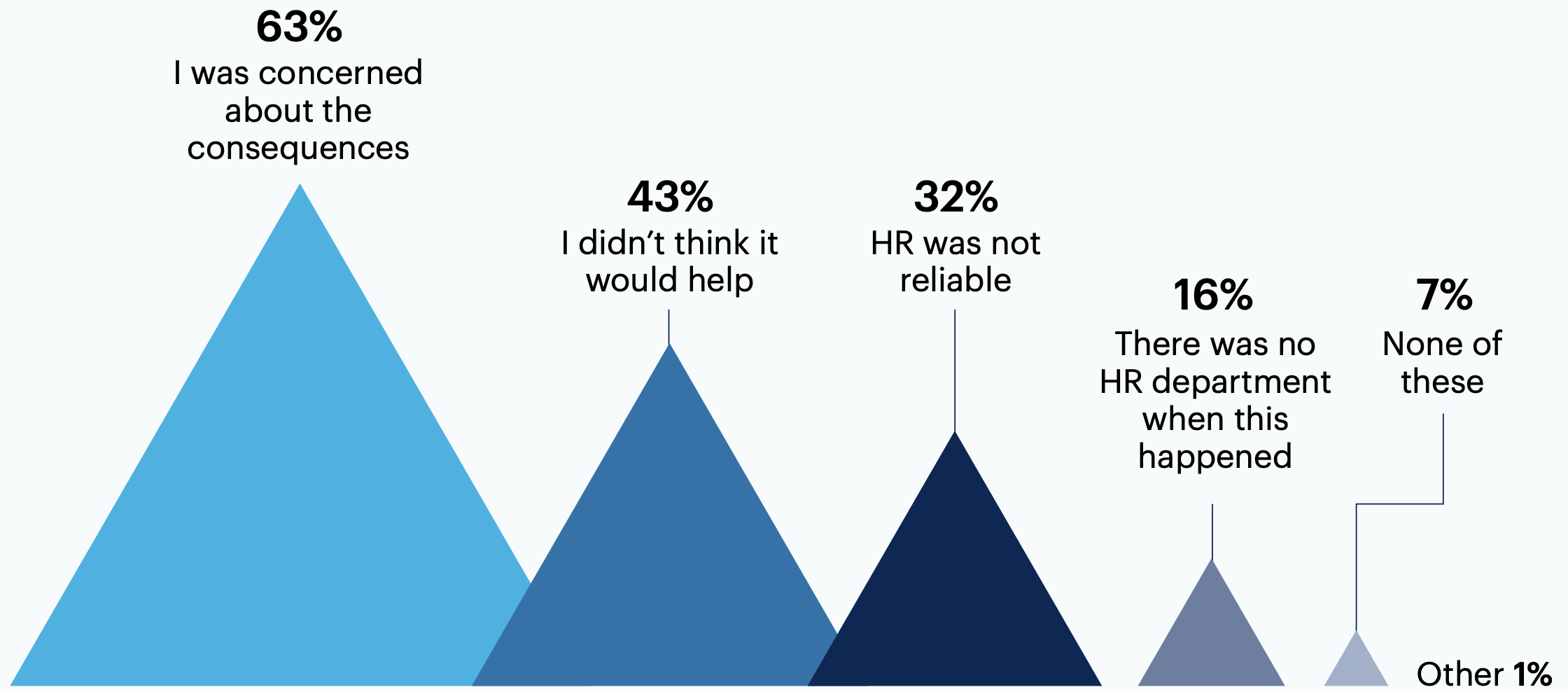
n = 201

Want more insights like this from leaders like yourself?
Click here to explore the revamped, retooled and reimagined Gartner Peer Community. You'll get access to synthesized insights and engaging discussions from a community of your peers.
Respondent Breakdown
